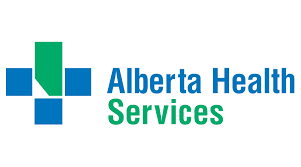ATHABASCA – While it is no longer breast cancer awareness month, Alberta Health Services (AHS) is continuing to spread the word about ways for Albertans to be proactive about their own health.
A Nov. 9 press release announced the return of the Mobile Screening Unit (MSU) to Boyle and Athabasca for the 2023 year, a service that provides a screening mammography to rural residents.
The MSU will be in Boyle from Nov. 30 to Dec. 5, and Athabasca from Dec. 6-9, as part of its yearly journey to 121 communities across the province. Westlock residents can book their appointments from Dec. 13-20, and the unit will be in Barrhead from Jan. 20 to Feb. 2, 2024.
“Screening mammograms are really important, and having a routine mammogram is really important,” said Chidinma Okoli, who works with the MSU as a health promotion facilitator.
“They’re the most effective way to find breast cancer early, while the tumour is still small and before symptoms develop.”
The Canadian Cancer Society (CCS) estimates 1 in 8 Canadian women will develop breast cancer during their lifetime, and 1 in 36 will die from it. According to Okoli, the earlier the cancer is detected, the more the survival rates, and quality of life post-treatment, go up.
“According to CCS, around 89 per cent are surviving breast cancer now if it’s found early,” said Okoli. “At that stage, an individual has much better options.”
The MSU exists to combat another rural inequality in healthcare — while urban centres have multiple clinics, rural healthcare centres are unlikely to have the equipment needed to perform the screening, which is done through a low-dose x-ray of the breast.
Currently, women or non-binary/transgender individuals between the ages of 45 and 74 are able to self-refer for the screening — they can fill out a referral sheet and book an appointment. People in this age range are recommended to have the screening performed every two years or as directed by a healthcare provider.
“For individuals with a family history (of breast cancer) or who have other concerns, they must have a referral from their doctor. Once they have that, they can then self-refer to the program,” said Okoli. “For people under 40, screening mammograms aren’t beneficial, so it’s best that they speak with a healthcare provider to refer them for other tests.”
Okoli added individuals with concerns between 40 and 44 should have a mammogram done every year.
“The reason we split it like this is because of the characteristics of the breast tissue,” said Okoli. “At that age, let’s just say that the breast is denser, so it’s really necessary to have that screening done every year. Past that age, the breast is less dense, and you can have it done every two years.”
MSU appointments take about twenty minutes on average, according to Okoli, and the actual screening process takes about ten minutes. While the mobile clinic does accept walk-ins, she encouraged everyone to book an appointment in case the schedule got hectic. Results typically take about two to three weeks to come in.
“Individuals should be aware of their breasts, and keep an eye out for changes,” said Okoli. “It could be a lump, an unusual shape, or discharge — whatever it is, don’t wait for the trailer. Call your healthcare provider and get a referral to a diagnostic facility. What we do is screening, not diagnostical.”



